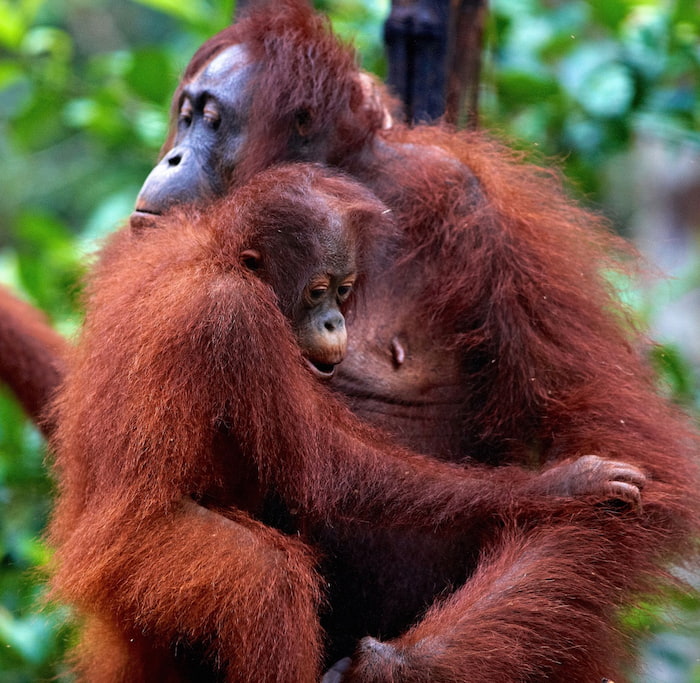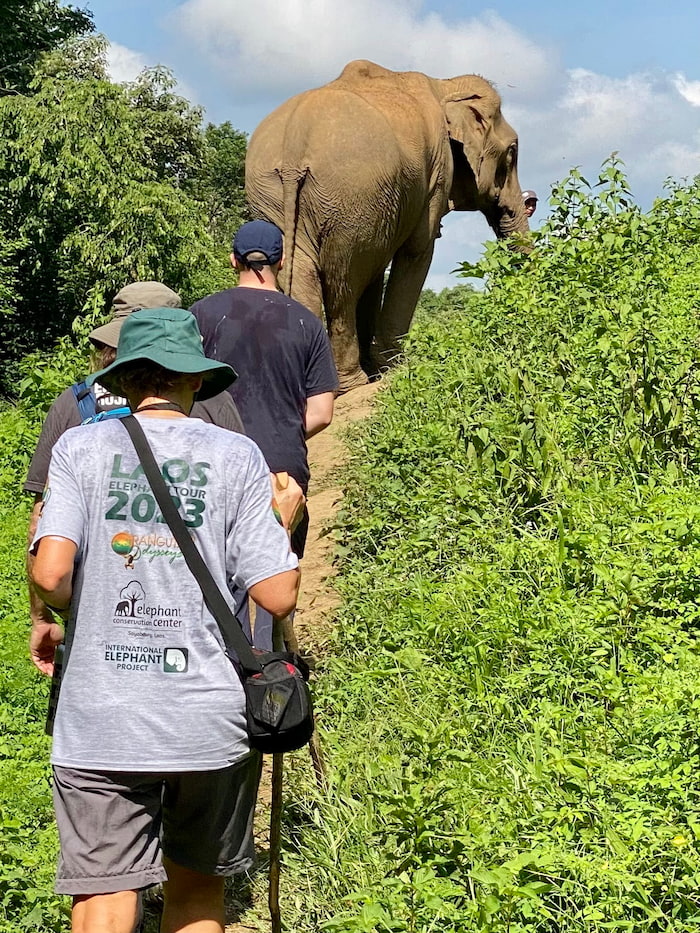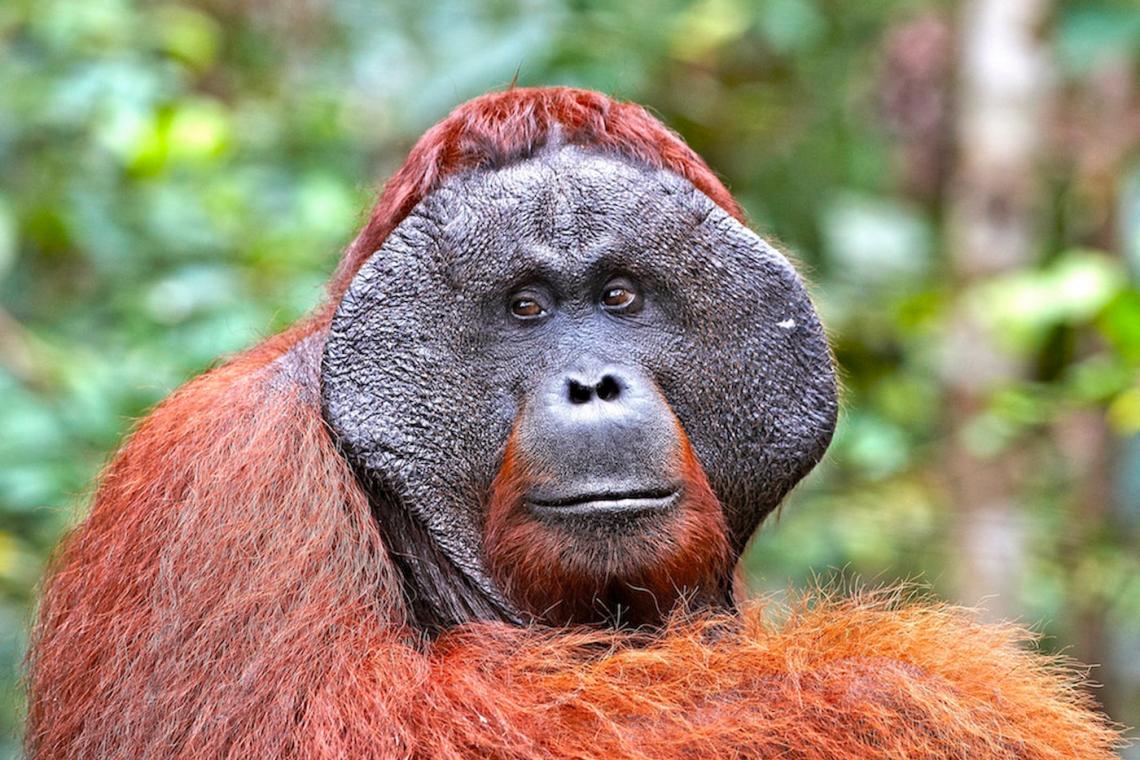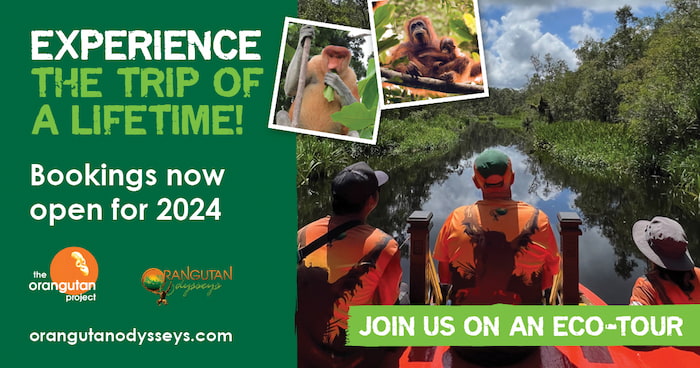#Sponsored
In a world increasingly focused on sustainability, eco-tourism stands out as a way to explore the planet's beauty while actively contributing to its preservation.
A 2020 study on the future of UN Sustainability Goals and Southeast Asian tourism reported 128.7 million international tourists arrived in 2018, contributing 12.6% to the region's economy and employing 38.1 million people. When the COVID-19 pandemic hit, tourism to the area took a 64% blow.

Even amidst the challenges posed by the COVID-19 pandemic, Southeast Asia has continued to offer a fertile ground for sustainable tourism growth.
Leif Cocks is the founder of Wildlife Conservation International, which umbrellas The Orangutan Project, International Elephant Project, International Tiger Project and Forests for People, operating in Indonesia, Laos, Sri Lanka and Malaysia.
“Post-pandemic we have entered a recession and high inflation that is pressurizing the middle class, our main donor base,” said Leif.
“We have had to review and modify fundraising activities to take into account the new economic environment where fundraising return-on-dollar spend has gone down.”
This growth, however, is not just measured in numbers, but by responsible exploration and conservation. Eco-tourism, with its emphasis on minimizing the ecological footprint, has become an opportunity to travel in an increasingly climate-aware world.
The research underpins the need for a shift in tourism practices and development interventions, to ensure travel contributes to a community’s sustainable future.

An eco-tourist’s perspective
“We provide opportunities for donors to engage with our conservation projects through attending eco-tours to our project sites in Indonesia, Laos and Malaysia, and through speaking events where they can learn more about the organization and ask questions,” said Leif.
The Orangutan Project, collaborating with Orangutan Odysseys, ensures that each eco-tour not only provides an immersive experience but also leaves a positive imprint on the environment. The goal of their eco-tours is for participants to become advocates of the natural wonders they’ve learned about.
Lynda Prior recently joined The Orangutan Project founder Leif Cocks on an elephant tour of Laos.
"I wanted something more educational and profound than a standard tourist holiday,” she said.
"You can combine tourist experiences with learning about conservation issues. It is important to support local efforts at conservation, both financially and by letting local people realize the value of their wonderful wildlife.”

Environmental impact of eco-tours
According to the authors of the 2020 study, the pandemic brought on a necessary call to embrace a transformative shift in tourism practices.
The health crisis was pegged to catalyze to "seek a radical break from what has come before," paving the way for greater social justice in the tourism sector.
Concepts such as local, home-grown development, with a focus on strengthening domestic tourism, and ideas centered on de-growth and human happiness may play a pivotal role in fostering this departure from Western capitalism.
The Orangutan Project tours play a crucial role in promoting environmental conservation. By choosing eco-friendly tour options, tourists actively contribute to minimizing the negative impact of tourism on fragile ecosystems.
“I have mixed feelings about travel – especially the greenhouse gas emissions from flying,” said Lynda.
“It is important to make these emissions ‘count’, in terms of supporting conservation efforts in these countries.
“The eco-tours I have done have been inspiring in showing what conservation organisations and committed individuals are doing, and have strengthened my resolve in supporting them,” said Lynda.
The Orangutan Project: 25 years on the ground
Established in 1998 by Leif Cocks, The Orangutan Project has become a global leader in conservation efforts. Cocks’ nearly three decades of experience working with orangutans position the project as experts in the realm of travel that benefits local communities and endangered wildlife.
Orangutan Odysseys, in collaboration with The Orangutan Project, combines adventure and education to support conservation efforts since 2009. The donations from each Leif Cocks tour directly benefits orangutan care centers in the areas visited, ensuring a positive impact on both the environment and local communities.
Discover the wonders of eco-tourism and make a difference in the enchanting world of orangutans with The Orangutan Project and Orangutan Odysseys.
The Future of Eco-Tourism
The trajectory of eco-tourism is poised for innovation and expansion. Research on eco-innovation and conservation policies in Indonesia suggests a scholarly foundation for the future of sustainable tourism.
A 2023 study establishes a positive connection between eco-product innovation, eco-process innovation, eco-organizational innovation, eco-tourism policies, and sustainable tourism growth.
The future of sustainable tourism involves a comprehensive transformation in business operations, product usage, and policy adherence.
The Orangutan Project, with its commitment to education and conservation, sets the stage for a fruitful future of eco-tourism in Southeast Asia.
"The beauty of Indonesia is not just in its landscapes but in the commitment to responsible tourism. The Orangutan Project embodies this ethos, creating an unforgettable experience while making a positive impact” said Lynda.
"It reinforced my understanding that it is not enough simply to change rules, but you need to put in place measures to support these changes."



